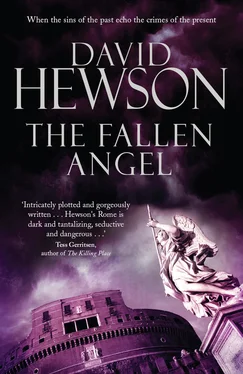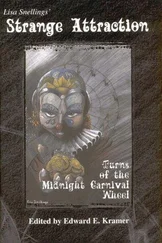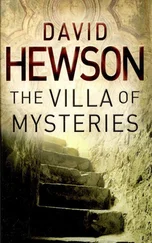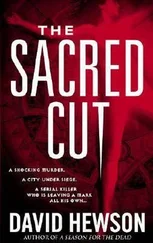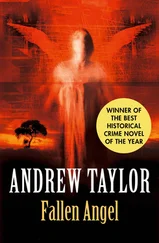David Hewson - The Fallen Angel
Здесь есть возможность читать онлайн «David Hewson - The Fallen Angel» весь текст электронной книги совершенно бесплатно (целиком полную версию без сокращений). В некоторых случаях можно слушать аудио, скачать через торрент в формате fb2 и присутствует краткое содержание. Жанр: Триллер, на английском языке. Описание произведения, (предисловие) а так же отзывы посетителей доступны на портале библиотеки ЛибКат.
- Название:The Fallen Angel
- Автор:
- Жанр:
- Год:неизвестен
- ISBN:нет данных
- Рейтинг книги:5 / 5. Голосов: 1
-
Избранное:Добавить в избранное
- Отзывы:
-
Ваша оценка:
- 100
- 1
- 2
- 3
- 4
- 5
The Fallen Angel: краткое содержание, описание и аннотация
Предлагаем к чтению аннотацию, описание, краткое содержание или предисловие (зависит от того, что написал сам автор книги «The Fallen Angel»). Если вы не нашли необходимую информацию о книге — напишите в комментариях, мы постараемся отыскать её.
The Fallen Angel — читать онлайн бесплатно полную книгу (весь текст) целиком
Ниже представлен текст книги, разбитый по страницам. Система сохранения места последней прочитанной страницы, позволяет с удобством читать онлайн бесплатно книгу «The Fallen Angel», без необходимости каждый раз заново искать на чём Вы остановились. Поставьте закладку, и сможете в любой момент перейти на страницу, на которой закончили чтение.
Интервал:
Закладка:
Through her story he began to appreciate that men held an ambivalent attitude to women, one that praised and adored their beauty while condemning, and punishing on occasion, their courage and individuality. It was a failing commonly acknowledged, but always in silence, unmentioned, unmentionable. And so Beatrice Cenci cast a long shadow across Rome because her story came to embody this very human frailty in a way that allowed it to be expressed and exorcised, century after century.
After her execution thousands had followed her coffin along the Via Giulia, across the Ponte Sisto, up the steep hill in Trastevere to the little church of San Pietro in Montorio at the foot of the Gianicolo hill. There she was buried in an unmarked grave beneath the altar. Costa knew the church, though not well. This quiet little place was rarely visited except by those seeking Bramante’s haunting little temple which was supposed to mark the site of St Peter’s martyrdom, not the last resting place of a childlike girl butchered as a common criminal. Even there Beatrice found no peace. Local rumour had it that Napoleon’s troops, when they ran riot in Rome at the end of the eighteenth century, exhumed her famous corpse and played football with the severed skull.
For a few brief, agonizing months of his mother’s illness Beatrice was rarely from Costa’s head, a distraction and a nagging reminder of another approaching tragedy, one much closer to home. He could still recall walking past the Ponte Rotto, the ruins of the imperial-era bridge stranded in the river near Tiber Island, which Beatrice had offered to rebuild from her own fortune, if only the Church would let her family survive. It had seemed to his young mind utterly savage that the tyrant in the Vatican should have refused her offer and instead taken her life, and those of her brother and stepmother.
Beatrice was a victim, one transformed into a heroine by her indefatigable will and serene beauty, and her refusal to bend to the power of the Pope who, some sources claimed, pursued her for his own reasons, among them the seizure of the valuable Cenci estates.
Buoyed by popular stories and Reni’s portrait of a tortured innocence, her savage end came to touch people far beyond Italy. Painters had been drawn to it for centuries. Some had even depicted Reni and the girl together in prison the night before she was beheaded, the artist at his easel, she sitting quietly, patiently, without fear, but with a muted sense of fatalistic resignation that would be captured on canvas for eternity. On the opera stage and in the theatre, in the exquisite Victorian photography of Julia Margaret Cameron, the story of the virginal Roman girl caught the imaginations of poets and writers and musicians. Alexandre Dumas had told her tale before moving on to The Count of Monte Cristo and The Three Musketeers . The American Nathaniel Hawthorne made her fate a focal part of the moral argument in his book, The Marble Faun .
Fifty years before Hawthorne, the English poet Shelley had seen Reni’s portrait in the Barberini and set down a description of the doomed girl which, for Costa, summed up the general conception of her character and its perennial appeal.
‘There is a fixed and pale composure upon the features; she seems sad and stricken down in spirit, yet the despair thus expressed is lightened by the patience of gentleness,’ Shelley wrote.
Costa couldn’t shake from his head the idea that the selfsame words could so easily be applied to the English girl, Mina, doggedly staying by her dead father, eyes brimming with tears, afraid, yet refusing to move until he agreed to her demand to carry the man’s broken body to safety.
And the words of her brother, fleeing into the night after firing a gun, apparently at the building where they’d lived.
She’s safe now.
Safe from what? The collapse of the building above her? Or something else altogether?
In the eyes of the world Beatrice Cenci was a righteous criminal, guilty of a just conspiracy to murder the father who oppressed, beat and raped her. A young woman guilty of the heinous crime of patricide in concert with her brother, stepmother and two henchmen, who had hammered a nail through Francesco’s skull then — and this element troubled Costa as the detail came back to him — thrown the battered body out of the window, hoping to pretend to the world that he had died accidentally from the fall.
It had taken the investigators of the Vatican to discover the truth, through means the sixteenth century thought normal: torture, in all its forms. He had shivered as he read again how the young woman’s arms had been ripped from their sockets as her inquisitors hauled her to the ceiling on ropes, fighting, and failing, to extract a confession. Giacomo, her brother, was less brave, and through his cowardice and unpredictable behaviour doomed them all. Under duress the truth, and the admissions, emerged, though never from her. Beatrice’s father, a rich and cruel nobleman, was a monster who sexually molested his daughter over a period of months, forcing her to take part in vile trysts with her own stepmother and with other men as he watched. His murder was the patricide of a heartless tyrant, hated by all. But patricide nonetheless, a crime the Pope of the day saw fit to punish with the utmost severity.
And so, on 11 September 1599, Giacomo was paraded through the streets of the centro storico in a tumbrel as torturers tore the flesh from his body with red-hot pincers. When they reached the piazza by the Ponte Sant’Angelo they bludgeoned him to death with a mallet to the temple. His corpse was decapitated and dismembered, the four quarters of his body hung from the bridge on butcher’s hooks for all to see. Beatrice’s stepmother followed to the same scaffold. Finally, watched by her younger brother, the only member of the Cenci family allowed to live, Beatrice walked impassively to the block, her head held high in front of sympathetic crowds that lined the bridge and the banks of the Tiber, all screaming for mercy for a sinner surely more deserving than most.
They fell silent at the final moment. The executioner raised his blade and the hooded monks of the Confraternita di San Giovanni Decollato, the Brotherhood of the Decapitated John the Baptist, waved their images of Christ in her face. She died from a single blow of the sword, refusing to admit her guilt or confirm a single detail of her father’s criminal and incestuous abuse. Thousands of mourners followed her bier to San Pietro in Montorio that evening. Even now the anniversary of her death was marked each year by a faithful few, and there were those who claimed her ghost haunted the environs of her old Roman home in the ghetto, the Palazzo Cenci, and the bridge in front of the Castel Sant’Angelo close to where she died.
Why this obsession that spanned centuries and continents? Perhaps because her fate asked awkward, unanswerable questions. How compliant was she in the death of her father? Did she initiate the attack, and spur on the murderers themselves when they faltered, as Giacomo had hinted? Or was she the silent victim, resigned to her death, simple and profound in her fatalism, as she had been to her depraved father’s abuses until, in the eyes of her admirers, finally she chose to place her rights as an individual above the harsh, inflexible tenets of the law?
There was, he thought, more to the enduring attraction of this story than met the eye. The sympathy the Cenci case aroused seemed to stem also from a general sense of unease surrounding the taboo of incest, a crime that always generated extreme emotions. Costa had been a police officer long enough to understand that sexual abuse within the family was more common than many appreciated, and usually went unreported and unpunished.
Читать дальшеИнтервал:
Закладка:
Похожие книги на «The Fallen Angel»
Представляем Вашему вниманию похожие книги на «The Fallen Angel» списком для выбора. Мы отобрали схожую по названию и смыслу литературу в надежде предоставить читателям больше вариантов отыскать новые, интересные, ещё непрочитанные произведения.
Обсуждение, отзывы о книге «The Fallen Angel» и просто собственные мнения читателей. Оставьте ваши комментарии, напишите, что Вы думаете о произведении, его смысле или главных героях. Укажите что конкретно понравилось, а что нет, и почему Вы так считаете.
